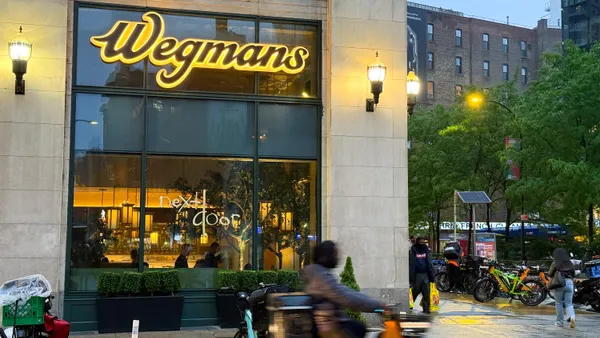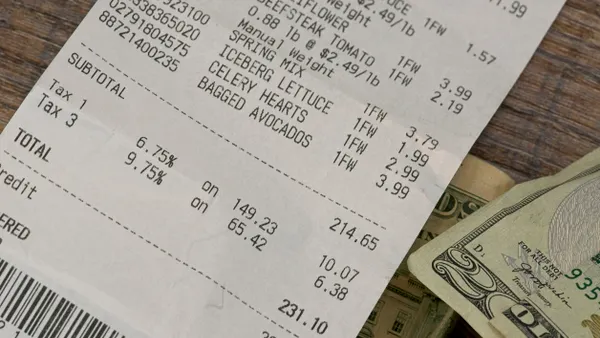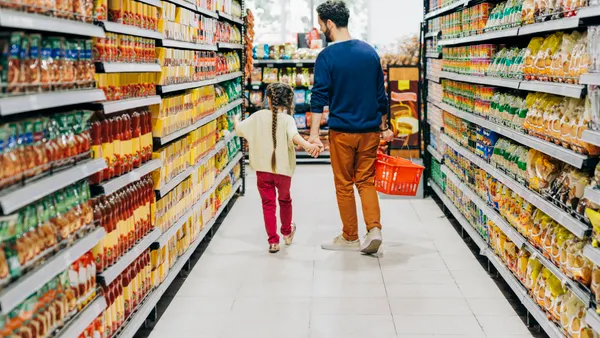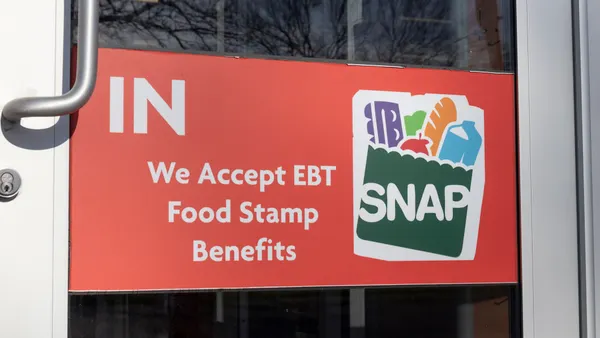Dive Brief:
- Meijer announced on Tuesday it aims to halve its absolute carbon emissions by 2025.
- To reach the target, the Midwestern retailer said it will add more renewable energy procurement and test “innovative” technologies like energy-saving geothermal projects for refrigeration, which it plans to pilot next year.
- The announcement builds on Meijer’s sustainability efforts and comes at a time when grocers are aiming to slash carbon emissions to help mitigate climate change.
Dive Insight:
In unveiling the goal, Meijer cited findings from the Intergovernmental Panel on Climate Change (IPCC) that greenhouse gas emissions would need to get halved by 2030 to keep global warming to 1.5 degrees Celsius above pre-industrial levels.
Last summer, the IPCC, an intergovernmental body of the United Nations, released its major report on the acceleration of global warming and called for the burning of fossil fuels to end as soon as possible.
Meijer said its efforts to meet the carbon emissions goal build on its existing energy and fleet efficiency programs. The retailer noted that it has already reduced emissions by 17% since 2014, equal to a 30% reduction in the amount of carbon dioxide emitted per square foot.
The retailer, which has 258 supercenters and grocery stores across six states, has also worked to cut refrigerant emissions across all its supercenters and reached its refrigerant leak rate goal by "installing leak detection systems, following robust maintenance policies and by replacing end-of-life equipment at each of its stores," the announcement said.
Meijer is the latest major grocer to announce targets to reduce carbon emissions as the industry ramps up focus on the climate crisis.
In November, Ahold Delhaize moved up its goal of reaching net-zero carbon emissions across its own operations by 10 years, to 2040, and said it aims to achieve a net-zero business across its entire supply chain, products and services by 2050. Last summer, Giant Eagle said it's working toward net-zero carbon emissions by 2040 and has set an initial target of cutting its carbon dioxide output in half by 2030.
Target has set its sights on becoming a "net zero enterprise" — producing net-zero emissions throughout its operations and supply chain, and zero waste to landfill in its U.S. operations — by 2040, while Aldi has a goal of reducing its greenhouse gas emissions by 26% by 2025. Kroger has said it wants to achieve a 30% cumulative greenhouse gas emissions reduction by 2030.
Along with carbon emissions, Meijer, like other grocers, has undertaken a range of sustainability initiatives. For example, the retailer has worked to integrate Flashfood’s food waste reduction app into its stores, partnered with food banks to rescue food and recycled waste from several of its dairy facilities into animal feed.
In November, the company revealed a project with Dow that used plastic bags collected from in-store recycling bins for a new paving technique.










